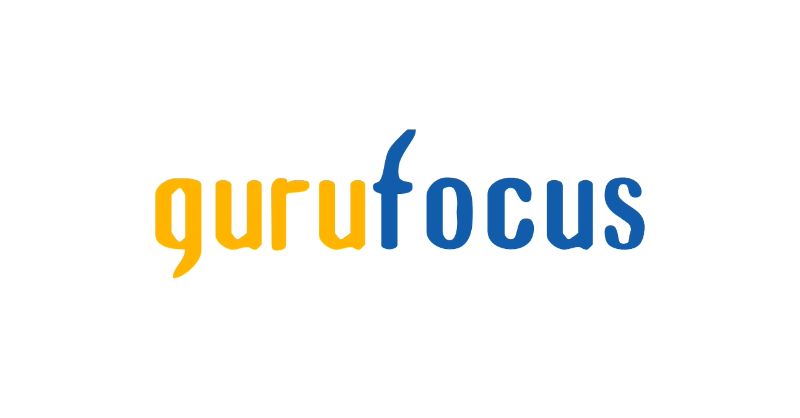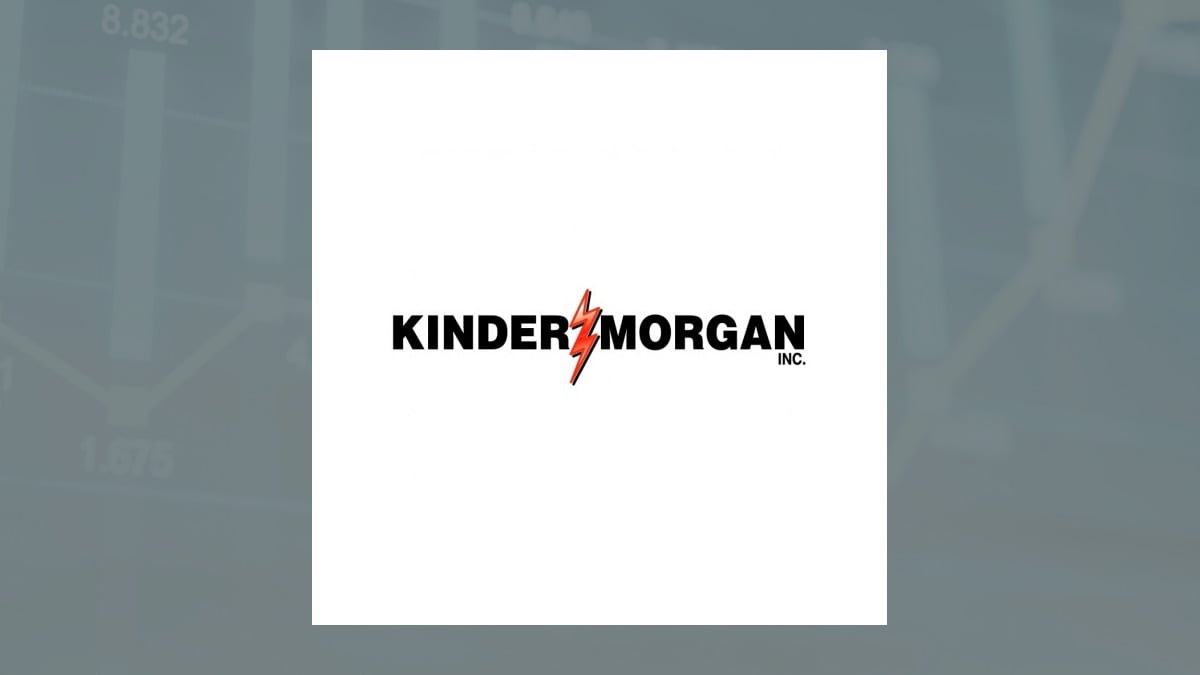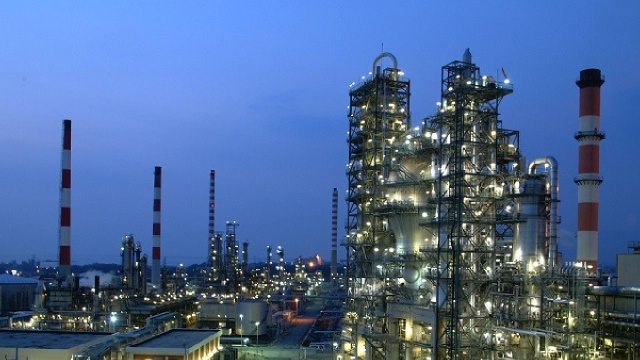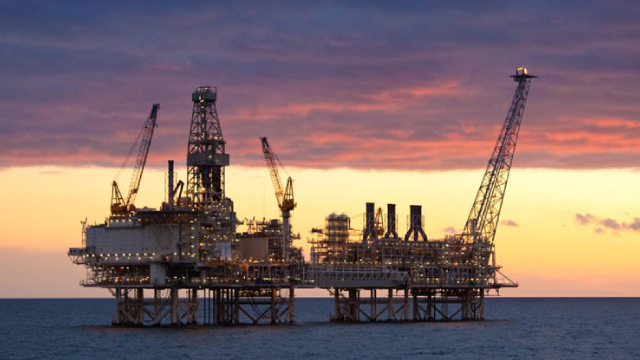
Kinder Morgan, Inc. (KMI)
$
30.49
+0.25 (0.82%)
Key metrics
Financial statements
Free cash flow per share
1.2373
Market cap
67.8 Billion
Price to sales ratio
4.0019
Debt to equity
1.0212
Current ratio
0.0306
Income quality
2.0244
Average inventory
280 Million
ROE
0.0992
Technology
Technology – consumer electronics
Largecap
With a market cap of 121,78 bil stock is ranked 1
Low risk
ISS score of this stock is ranked 1
Company description
Profile
Kinder Morgan, Inc. functions as a vital energy infrastructure entity in North America, with its operations spanning four distinct segments: Natural Gas Pipelines, Products Pipelines, Terminals, and CO2. The company's diverse activities include owning and managing a comprehensive network of interstate and intrastate natural gas pipelines, along with underground storage systems, gathering systems, and processing facilities. This segment also covers natural gas liquids fractionation and transportation systems, as well as liquefied natural gas (LNG) liquefaction and storage facilities. The Products Pipelines segment includes the ownership and operation of refined petroleum products and crude oil pipelines, alongside relevant product terminals and petroleum pipeline transmix facilities. Additionally, the Terminals segment is engaged in the ownership and operation of liquids and bulk terminals, which facilitate the storage and handling of a variety of commodities such as gasoline, diesel fuel, chemicals, ethanol, metals, and petroleum coke. It also maintains a fleet of tankers for these operations. The CO2 segment contributes to crude oil recovery from mature oil fields, producing, transporting, and marketing CO2, while also owning interests in oil fields and gasoline processing plants, alongside operating a crude oil pipeline system in West Texas. Furthermore, it maintains resources in renewable natural gas (RNG) and LNG facilities. The company boasts nearly 83,000 miles of pipelines and 143 terminals, underpinning its extensive operational reach. Historically, Kinder Morgan, Inc. was recognized as Kinder Morgan Holdco LLC until a name change in February 2011. Established in 1936, the company operates from its headquarters in Houston, Texas. The net total of other income and expenses is -$820,000,000.00 reflecting non-core financial activities. The cost of revenue for the company is $9,549,000,000.00 showcasing its production and operational expenses. The earnings per share (EPS) is reported at $1.37 indicating the company's profitability on a per-share basis. The net income ratio is 0.18 reflecting the company's profitability margin, while an income before tax of $3,992,000,000.00 showcases its pre-tax profitability. The stock is affordable at $27.42 making it attractive for budget-conscious investors. It benefits from a high average trading volume of 13,679,853.00 indicating strong liquidity in the market. With a large market capitalization of $67,832,944,291.00 the company stands out as a dominant player in its field. It plays a crucial role in the Oil & Gas Midstream industry, contributing significantly to the overall market landscape. Additionally, knowing it belongs to the Energy sector, the company drives innovation and growth in energy infrastructure, capturing opportunities for future development and expansion.
Is Kinder Morgan, Inc. (KMI) a good investment?
Investing in Kinder Morgan, Inc. (KMI) depends on multiple factors, including revenue growth, profit margins, debt-to-equity ratio, earnings per share, and return on equity. Analysts have rated it as B, with a Bullish outlook. Always conduct your own research before investing.
What is Kinder Morgan, Inc. (KMI)'s stock forecast?
Analysts predict Kinder Morgan, Inc. stock to fluctuate between $23.94 (low) and $30.57 (high) in the next 365 days, reflecting market expectations and potential volatility.
What is Kinder Morgan, Inc.'s market capitalization?
As of 2026-01-30, Kinder Morgan, Inc.'s market cap is $67,832,944,291, based on 2,224,760,390 outstanding shares.
How does Kinder Morgan, Inc. compare to competitors like Exxon Mobil Corporation?
Compared to Exxon Mobil Corporation, Kinder Morgan, Inc. has a Lower Market-Cap, indicating a difference in performance.
Does Kinder Morgan, Inc. pay dividends?
Kinder Morgan, Inc. pays dividends. The current dividend yield is 3.84%, with a payout of $0.29 per share.
How can I buy Kinder Morgan, Inc. (KMI) stock?
To buy Kinder Morgan, Inc. (KMI) stock: Open a brokerage account (e.g., Robinhood, TD Ameritrade, E-Trade). Search for KMI. Place an order (Market, Limit, etc.).
What is the best time to invest in Kinder Morgan, Inc.?
The best time to invest depends on market trends and technical indicators, which show a Bullish trend based on economic conditions and company performance.
Has Kinder Morgan, Inc. stock ever split?
Kinder Morgan, Inc.'s last stock split was 10:1 on 2015-01-20.
How did Kinder Morgan, Inc. perform in the last earnings report?
Revenue: $16,950,000,000 | EPS: $1.37 | Growth: 17.09%.
Where can I find Kinder Morgan, Inc.'s investor relations reports?
Visit https://www.kindermorgan.com/investor-relations for detailed financial reports.
Where can I find historical stock prices for Kinder Morgan, Inc.?
You can explore historical data from here
What is the all-time high and low for Kinder Morgan, Inc. stock?
All-time high: $31.48 (2025-01-21) | All-time low: $15.01 (2021-12-20).
What are the key trends affecting Kinder Morgan, Inc. stock?
Key trends include market demand, economic conditions, interest rates, and industry competition, which influence the stock's performance.
News

fool.com
Kinder Morgan's gas pipeline business is seeing record demand, largely fueled by LNG. It's starting to see significant demand growth from the power sector to support AI data centers.

gurufocus.com
Summary ClearBridge Energy Midstream Opportunity Fund Inc. raised its stake in Kinder Morgan Inc (KMI) by 10.8%, purchasing 260,154 shares to own 2,669

defenseworld.net
Kinder Morgan (NYSE: KMI) executives said the company closed 2025 with record quarterly and full-year results, driven primarily by strength across its natural gas businesses and supported by a growing project backlog and improving credit profile. Management highlights strong natural gas demand outlook Executive Chairman Rich Kinder said the company remains bullish on long-term U.S. natural

fool.com
Kinder Morgan reported record earnings in 2025. The company's strong financial profile provides a rock-solid foundation for its high-yielding dividend.

seekingalpha.com
Kinder Morgan, Inc. (KMI) Q4 2025 Earnings Call Transcript

zacks.com
Kinder Morgan (KMI) came out with quarterly earnings of $0.39 per share, beating the Zacks Consensus Estimate of $0.37 per share. This compares to earnings of $0.32 per share a year ago.

zacks.com
Kinder Morgan's Q4 results may get a boost from higher natural gas pipeline revenues but an earnings beat is unlikely.

zacks.com
In the closing of the recent trading day, Kinder Morgan (KMI) stood at $27.96, denoting a +2.01% move from the preceding trading day.

zacks.com
Kinder Morgan (KMI) closed the most recent trading day at $27.38, moving +1.71% from the previous trading session.

zacks.com
The latest trading day saw Kinder Morgan (KMI) settling at $26.82, representing a -3.87% change from its previous close.
See all news